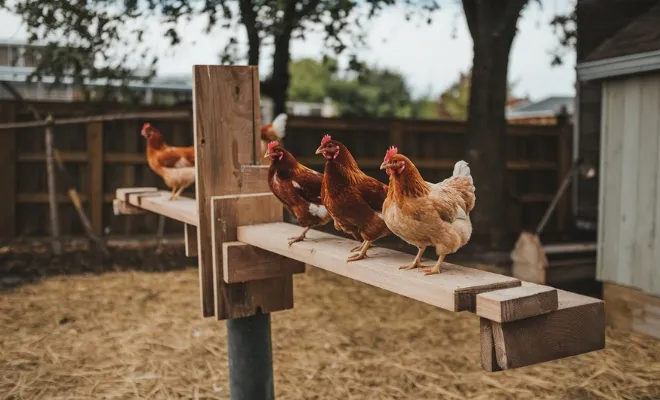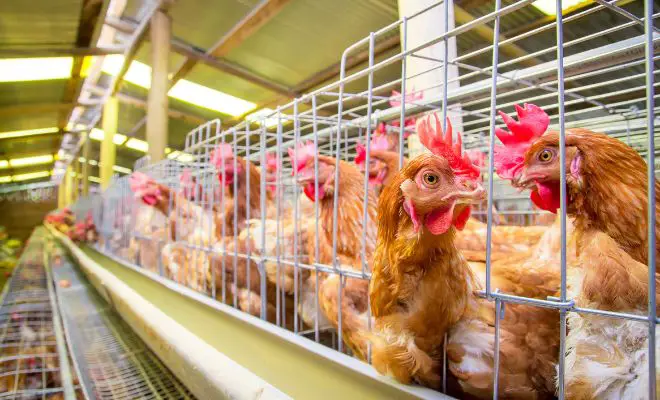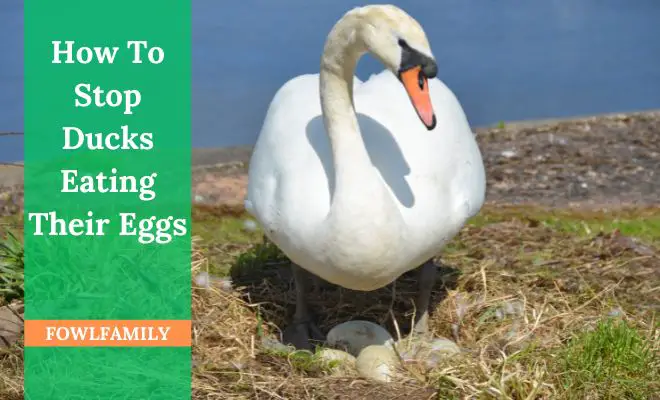18 Ways to Keep Chickens Cool In Summer!

In the summertime, it becomes important to keep our chickens comfortable. When it gets really hot, chickens feel stressed out, which makes them lay fewer eggs and feel sick. But don’t worry, there are lots of easy ways to help them stay cool!
I have listed 18 ways to keep chickens cool in summer! In the summer, the main goal is to keep chickens cool by giving them shade, good airflow, and cool water. Setting up shady spots with trees or tarps helps them escape the hot sun. And making sure their coop has good air circulation with windows or fans is key for their comfort.
Let’s check out these cool tips to keep our feathered friends happy in the summer!
Table of Contents
Signs and Symptoms: How Do You Know Chickens Need to Be Cool In Summer?
What if my chickens have heat stress or summertime sickness? How do I know? Well, here’s a list of signs that indicate they need to cool ASAP –
Physical Signs
If you ask me for physical signs, check these things out –
- Panting with open beaks.
- Holding wings away from the body.
- Lethargy or reluctance to move.
- Sunken eyes or droopy appearance.
- Decreased egg production.
- Pale combs and wattles.
- Wings held away from the body.
- Decreased eggshell quality.
- Labored breathing.
- Resting in unusual positions.
- Feather loss or molting.
Behavioral Signs
Want to know if they are in heat stress? Here are the things to check –
- Increased water consumption.
- Seeking shade or digging holes in cool soil.
- Agitation or restlessness.
- Decreased appetite.
- Aggressive behavior.
- Reduced vocalization.
How to Keep Chickens Cool in Summer? List of 18 Tips!
You look worried about chickens in summer, but don’t be! Here’s a list of tips to follow to keep them cool in high heat –
1. Provide Shade
Shade is absolutely critical for protecting chickens from the intense summer sun and heat. Set up shaded areas using large trees, shade cloths/tarps suspended over their run, or purchase a proprietary chicken run cover made from materials that block UV rays.
As the sun moves, ensure the shade shifts to provide a constantly cool retreat. Too much direct sunlight can quickly lead to heat stress, exhaustion, and potential death in chickens.
2. Good Ventilation
Proper airflow and ventilation help prevent heat from becoming trapped inside the coop. Open up windows, vents, and doors to allow cool outdoor air to circulate. Installing one or more large box fans can really boost air movement.
Good ventilation evacuates heat, lowers humidity levels, and prevents potential respiratory issues (Sneezing) from dust and dander buildup when chickens pant excessively in the heat.
3. Misting Systems
Install a misting or fogging system to cool the air through evaporative cooling. As the fine mist of water droplets evaporates, it absorbs heat from the surrounding air lowering the ambient temperature. Position misters throughout the run area and even inside the coop.
Be sure to use proper misting nozzles and maintain the system to prevent clogs.
4. Provide Dust-Free Feed
The dust and particulate matter in some feeds can irritate chickens’ respiratory systems when combined with heat stress and excessive panting. Use low-dust pellet feeds or ferment/sprout grains to reduce dust. Avoiding dusty litter like dry shavings will also help.
5. Frozen Treats
Make refreshing frozen treats by filling ice trays or containers with chicken feed, greens, fruits or veggies, and water before freezing into solid blocks. Chickens love pecking at these “frozen popsicles” which provide hydration as the ice melts.
You can also freeze entire cabbages or watermelons for them to eat like a “slushie”.
6. Summer Treats
Treat your flock to seasonal summer goodies like cold watermelon, frozen peas or corn, cucumber slices, etc. Many fruits and veggies have high water content to hydrate the chickens while providing a cooling effect as they digest the chilled snacks.
7. Electrolytes
On extremely hot days, chickens lose essential salts through excessive panting and drooling. Adding electrolyte supplements like Gatorade, Pedialyte, or poultry electrolyte packs to their drinking water replaces those lost salts and minerals to prevent dehydration-related issues.
8. Avoid Corn
Corn generates more metabolic heat in chickens during the digestion process compared to other grains. Switch to alternatives like wheat, oats, and barley that produce less heat-creating fermentation in their bodies.
9. Fresh Water
One of the most important things is constantly providing cool, fresh drinking water. Chickens need to stay well hydrated, and their water sources can heat up extremely quickly on hot days. Change their water frequently and consider using water coolers/chillers designed for poultry.
10. Kiddie Pool
Allow access to a small kiddie or wading pool filled with just an inch or two of fresh water for the chickens to stand in and cool their bodies. Adding frozen bottles or blocks of ice will help keep the water chilled longer. Position it in a shaded area.
11. Dust Baths
Dust bathing actually helps insulate chickens by allowing tiny air pockets to form in between their feathers. Provide a dust bath area filled with dust/litter material and rake it daily. Be sure it’s in a shaded spot with good airflow.
12. Elevated Roosts
Heat rises, so give roosting bars up high in the coop where the air is naturally cooler than lower down. Elevating their roosting space away from the ground allows heat to escape below while they cool off above.
Ensure excellent overhead ventilation.
13. Frozen Water Bottles/Blocks
Freeze plastic bottles or containers full of water and place them throughout the coop and run area. As the ice slowly melts, it provides wonderfully refreshing evaporative cooling. You can also use ice blocks made for coolers that last longer.
14. Cooling Pads/Mats
Purchase cooling pads, mats, or gels designed for pets and allow chickens access to them. These mats work by absorbing body heat to create a chilled surface for the birds to lie directly against and lower their core temperature.
15. Reduce Activity
Minimize strenuous activity and consider confining chickens to their shaded coop during the peak heat hours of the day. Less movement equals less metabolic heat produced by their bodies. Egg production and growth also slow to prevent excess internal heat.
16. Trim Vegetation
Overgrown grass, weeds, shrubs and trees directly surrounding the coop can block airflow and ventilation. Keep this vegetation neatly trimmed back to maximize any breezes and prevent still, stagnant air around the coop.
17. Adjust Feeding Times
The process of digesting food creates metabolic heat in chickens. Avoid feeding during the hottest times of day when they are already struggling to keep cool. Give their main daily meals during the relative cool of very early morning or evenings.
18. Monitor Health
Closely observe your flock for signs of heat stress like panting, lethargy, decreased egg production, decreased appetite, and dull eyes/wattles. Catching symptoms early allows you to immediately take corrective cooling actions before serious health issues develop.
Some Other Key Notes When Keeping Chickens Cool in Summer
I have some points to share with all the chicken owners. Be sure you keep these things in mind –
- It’s important to limit treats and extras, especially scratch grains, during extreme heat waves.
- Feeding hens layer rations in the early morning or late evening when temperatures are lower.
- Remember that egg production will likely decrease during periods of extreme heat due to decreased feed intake.
- It’s recommended to ventilate nest boxes as much as possible or provide temporary alternate laying arrangements.
- I suggest you prevent hens from going broody during extreme heat.
- You may need immediate cooling measures, such as submerging her body (not head) in cool water.
Love to know more about summertime care for chickens? Here’s a video!
FAQs
Want to hear more about keeping chickens cool in summer? Check the Q&A part!
Q. How hot is too hot for chickens?
A. It depends on breed and humidity. But generally, temperatures above 85°F (29°C) are dangerous for chickens.
Q. How to keep chickens cool in 100-degree weather?
A. At 100°F, provide ample shade, cool misting, electrolyte water, and frozen treats. Keep the coop well-ventilated.
Q. Chicken coop is too hot at night. What to do?
A. Ensure good ventilation with open windows/vents. Consider nighttime misting or frozen water bottles for extra cooling.
Summary
It’s so important to keep our feathered friends cool during those hot summer days. Trust me, I’ve seen how heat can stress them out and affect their egg-laying and overall health. But don’t worry! The list of tips I shared is enough to make them survive well!
So, ensuring they have shade, good airflow, and plenty of cool water is key. I always keep an eye on them, watching for any signs of heat stress like panting or lethargy. By following these simple tips, our chickens can enjoy a happy and carefree summer!






